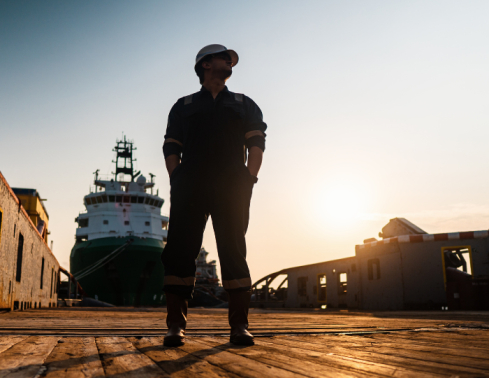Brunei Shell Petroleum Company Sdn Bhd (BSP), a joint venture between the Government of Brunei and Shell plc, deploys Opsealog’s digital reporting and fleet optimization tools across a 45-vessel fleet following a successful trial that saved up to 10% on monthly fuel consumption and emissions.
Marseille, 19 October 2022 – BSP, the largest oil and gas company in Brunei Darussalam, has entered into a contract with French digitalization leader, Opsealog, to optimize the operations of its offshore fleet and digitize its technical and environmental reporting.
Opsealog’s digital logbook Streamlog has been deployed across BSP’s fleet of 45 vessels, streamlining daily reporting and vessel activity monitoring for crews. Replacing manual processes and spreadsheets, Streamlog simplifies data entry and automatically generates noon and other reports, such as waste management, product inventory, health and safety, and engine running hours.
BSP has also deployed Opsealog’s Marinsights software to analyze operational patterns, identify inefficiencies, and optimize its fleet of offshore support vessels, which operate in Brunei waters. This will help boost fuel efficiency, supporting BSP’s emissions reductions and sustainability objectives.
Following a successful pilot project on ten vessels, which started in May 2021, monthly fuel savings ranging from 5% to 10% was achieved. These efficiency gains were achieved through a combination of comprehensive data collection that provided a detailed picture of the fleet’s activities on dashboards and expert analysis by Opsealog’s team, delivered in weekly recommendations to the vessels and to BSP’s shoreside fleet management team. The total reductions in CO2 emissions amount to approximately 10,300 tons since the beginning of the project.
Maximilien Colucci, Account Manager at Opsealog said:
“Our work in collaboration with BSP demonstrates how digitalization can have a major and almost immediate impact on fuel consumption and emissions. Our solutions started generating savings only a month after they were first deployed. By collaborating closely with BSP’s teams on shore and on board, we were able to identify major efficiency opportunities and unlock their potential. Thanks to their pioneering and data-driven mindset, we are able to explore new areas and go even further in our optimization actions and recommendations to help them achieve their efficiency and sustainability ambitions.”

